How to Soundproof a Home
Are you considering soundproofing your home? Here are ten great soundproofing tips to reduce noise.
Soundproofing is a great way to block outside noise from entering your home. When done right, soundproofing can even isolate noise in particular rooms and areas throughout your home. Whether you are interested in soundproofing an entire house or specific rooms, soundproofing can be a great solution as the world around us becomes louder.
While soundproofing might only be necessary for some, it is an excellent solution if you live in a busy city or growing suburban area with lots of outside noise throughout the day and night. Soundproofing offers many benefits, including increased privacy, better sleep, reduced stress and anxiety, improved productivity, hearing protection, and overall peace of mind, which promotes better health and well-being.
Most homeowners decide to soundproof their homes to prevent unwanted noise from entering or to minimize noise from leaking out. Soundproofing is an effective solution for musicians who want to play instruments at home, for individuals who work from home and have frequent meetings, and for individuals who suffer from insomnia or interrupted sleep.
Sound can not be blocked entirely, but many great solutions are available that significantly reduce noise. Thanks to certain sound-absorbing materials, soundproofing is a highly effective solution for dealing with loud neighbors and street noise when living in Raleigh.
Check out these soundproofing solutions
1. Soundproof Insulation
Soundproof insulation absorbs and dissipates sound energy to prevent it from traveling between spaces. Designed with acoustics in mind, soundproof insulation can not eliminate noise, but it does a great job of dampening sound by soaking up sound energy similar to a sponge.
Designed to be thick and dense, soundproof insulation can be made out of multiple materials, including fiberglass, mineral wool, cellulose, spray foam, polyester fiber, cotton, cork, and mass-loaded vinyl.
Each material has unique properties, but they can all be effective insulation types based on the level of soundproofing needed. Cotton, fiberglass, and mineral wool are considered the best acoustic insulation types for most homes.
To install soundproof insulation, the existing drywall must be removed to expose the wall studs. Fill the space between the studs with the soundproof insulation of your choice, leaving no gaps, and then re-install the drywall.
Adding a higher volume of insulation can improve sound absorption, but the more insulation used, the higher the cost of materials and insulation will be. From a cost standpoint, fiberglass insulation will provide the most absorption for the best price. Depending on the square footage of the wall, the average price to add soundproof insulation to a wall will range from $1 to $10 per square foot.
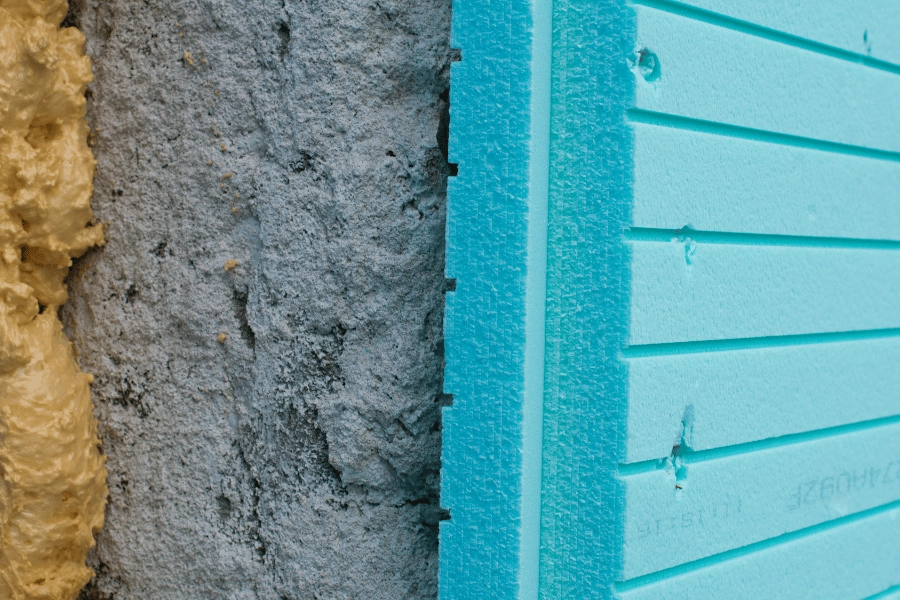
2. Add Rugs
Rugs are a great, cost-effective option for soundproofing a room since they dampen noise. Thick tufted area rugs are the best option instead of thinner, flat rugs because they reduce sound from the impact of shoes, pets, furniture, and other noises throughout a home.
In addition to being sustainable, rugs made from natural materials such as wool and cotton tend to absorb sound better than synthetic materials due to their porous structure, which can effectively trap sound waves. Add rugs throughout your home to absorb sound while brightening a room by adding color and pattern.
3. Curtains
In most homes, outside noise comes in through the windows. Many windows are poorly sealed and are single-paned, meaning that sound can quickly enter and escape through them. Unfortunately, no window is completely soundproof, but there are some things you can do to limit the amount of sound that passes through the glass.
Curtains do a great job of reducing noise throughout a home and in particular rooms. While a low-weight, low-density curtain will have little to no soundproofing effect, there are curtains on the market made for soundproofing purposes.
Created to reduce unwanted noise while blocking the sun and providing privacy for a home, soundproofing curtains work great in large spaces by absorbing and diffusing soundwaves. Working to block anywhere from 20% to 50% of noise, they can reduce sound by up to 29 decibels and are ideally used in living rooms, bedrooms, movie theaters, and office spaces.
The heavier and thicker the curtain, the better it will block sound. Curtains with multiple layers made of tightly woven materials are ideal. Most soundproof curtains are affordable and come in many different colors and textures.
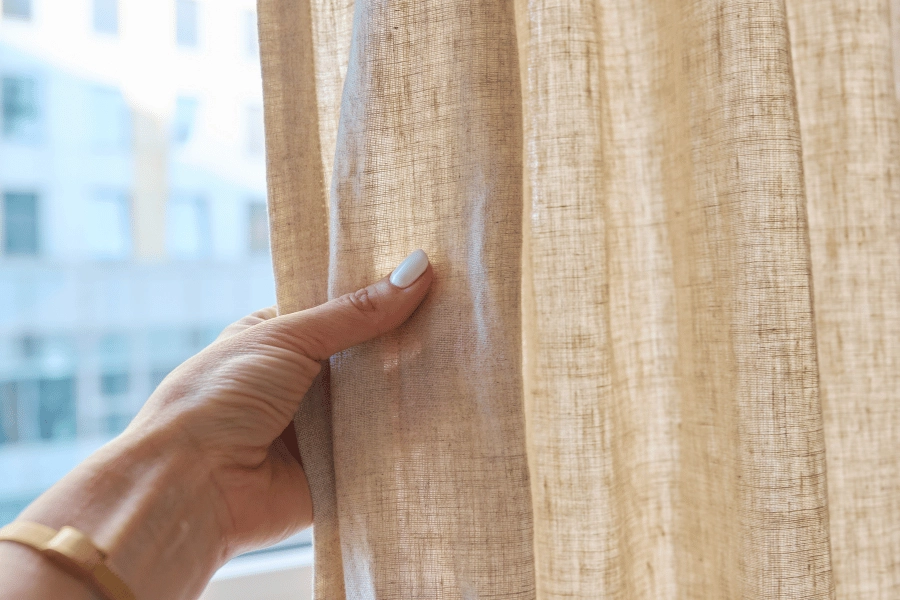
4. Window Seals
The next best way to soundproof curtains is to use weather strips or caulk to seal windows. Small openings or gaps between the window frame allow sound to enter a home, and when applied correctly, sealing these gaps can significantly reduce noise levels while keeping heat inside the home.
Both weatherstripping and caulk are designed to prevent air leaks and sound transmission while maintaining good indoor air quality. While not 100% effective in blocking noise, sealing windows helps reduce small sounds by filling air gaps between the window and the outdoor environment.
Acoustic caulk is a type of caulk explicitly made for soundproofing. This non-flammable latex-based sealant remains flexible instead of hardening, which makes it better for dampening sound. Even though it costs more than regular silicone caulk, acoustic caulk is worth the purchase if you want to reduce noise.
5. Bookshelves
Are you an avid reader? The good news is that bookshelves are great at displaying books and can create a noise buffer that prevents sound from passing through. Thanks to their material and density, bookshelves create a soundproof effect, especially ones filled with books.
They look great and, add character to a room, and are effective at blocking low frequencies such as footsteps, low conversations, and general house noises. Solid wood bookshelves offer the most sound absorption compared to lighter materials, and they work the best when placed against a shared wall, such as in an apartment or townhome.
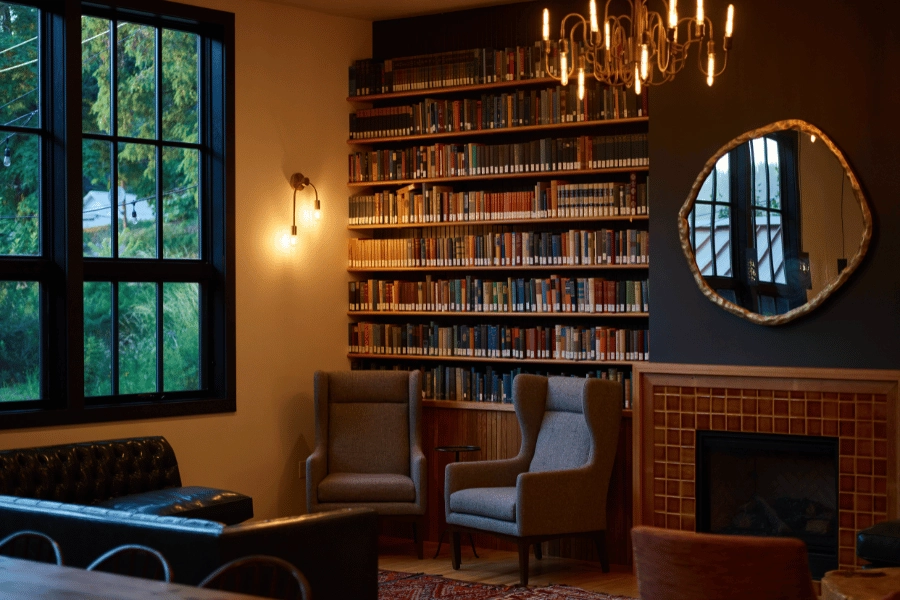
6. Rearrange Furniture
Another great tip to reduce noise in a home is to rearrange furniture. Empty rooms with little furniture and wall decorations echo sound more than furnished rooms since fewer surfaces are available to absorb sound waves.
Placing larger and heavier furniture pieces in a room and arranging them against shared walls will reduce sound from leaving and entering the room. Due to the density and mass of furniture pieces such as dressers, desks, sofas, chairs, and ottomans, they act as a barrier against sound waves. Furniture made of wood and dense fabrics such as suede, cotton, and microfiber tend to block out sound the most.
7. Acoustic Panels
Acoustic panels are sound-absorbing panels often made from a wooden frame, filled with fiberglass, mineral wool, or cellulose, and covered with fabric. These large panels reduce echo and sound reverberation in a room, making them ideal for home offices, home theaters, musicians practicing at home, and bedrooms.
Sold in many different shapes and sizes, acoustic panels can even be customized to fit a space. Since they will be visible in a room, they are often sold in various colors and patterns. Considered a practical solution for reducing unwanted noise, acoustic panels are a fantastic option for soundproofing.
Acoustic panels are worth the purchase, but they are often expensive due to their high-quality materials and specialized design. To save money, consider building them yourself.

8. Door Sweep
Door sweeps are generally inexpensive and can be an easy solution to blocking sound from entering a door. Considered one of the best ways to fix a drafty door, they also double as a soundproofing tool and can make a big difference in noise control.
Door sweeps are a type of weatherstripping that seals the space between the bottom of a door and the threshold. They can be applied to any door throughout a home. These devices are easy to install and are often made of rubber or vinyl and a brush material.
9. Update Floors
Older flooring, especially wood floors, can cause a lot of extra noise throughout a home as they age and experience changes in temperature and moisture. Updating floors can be a great soundproofing solution, as different flooring materials feature sound absorption capabilities.
Thick vinyl flooring and padded carpet are great material choices for dampening sound. As long as the flooring is installed correctly and an acoustic underlayment is applied between the subfloor and the top layer of flooring, sound and vibrations throughout the home can be reduced.
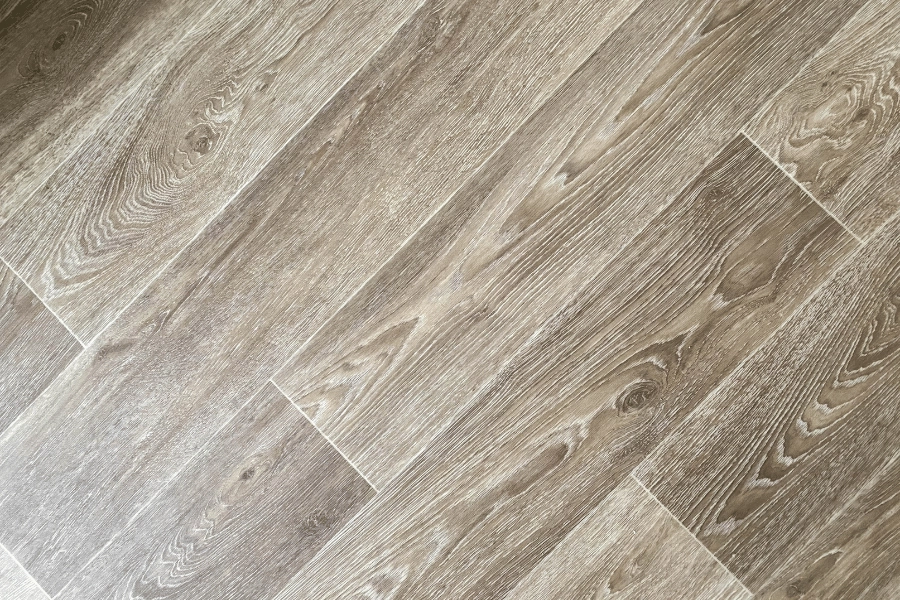
10. White Noise
White noise machines are not an effective soundproofing solution, but they do a great job blocking unwanted sound by masking surrounding noises. They work by mixing different sound frequencies, creating a consistent and soothing sound that can be played at a low volume.
Many people like sleeping with a white noise machine playing since they can drown out distracting noises. While white noise can not technically soundproof a room, it can effectively cover up loud noises and make them less noticeable. Worth the money, white noise machines are generally affordable and are sold online and in big box stores.
FAQs
Can you soundproof an existing house?
Yes, in most cases, soundproofing is done on an existing home, depending on the homeowner's needs. Soundproofing solutions can be added to existing walls and insulation, making it easy to block outside noises from entering the home.
How much does it cost to soundproof a house?
Soundproofing usually costs between $10 and $30 per square foot. This means that soundproofing an entire house can cost thousands of dollars. The national average range to soundproof is between $1,000 and $4,000, depending on the type of acoustic solution used and the size of the room or home that needs soundproofing.
Does soundproof paint really work?
Unfortunately, soundproof paint is not a practical solution for soundproofing a room. While it offers some level of sound reduction and helps dampen sound, it cannot stop low frequencies such as bass, stomping, and thuds throughout a home.
Methodology
Data and information were collected from Science Direct, Fixr, Angi, and Home Depot to determine the best ways to reduce noise and make a home soundproof.
How To Reduce Noise in Your Home - Final Thoughts
There are many great ways to reduce noise in your home, from installing soundproof insulation to investing in acoustic panels. Most of the soundproofing tips listed above are affordable and can be easily applied. Depending on the size of your home, your overall budget, and the level of noise reduction needed will determine which soundproofing solution is best for your home.
While there is no way to eliminate all unwanted noises and completely soundproof your home, following these tips will be the first step towards noise reduction and can make your home feel more comfortable. If you are moving to Raleigh and are looking for a home away from loud noises and in a quiet neighborhood, Raleigh Realty is here to help.
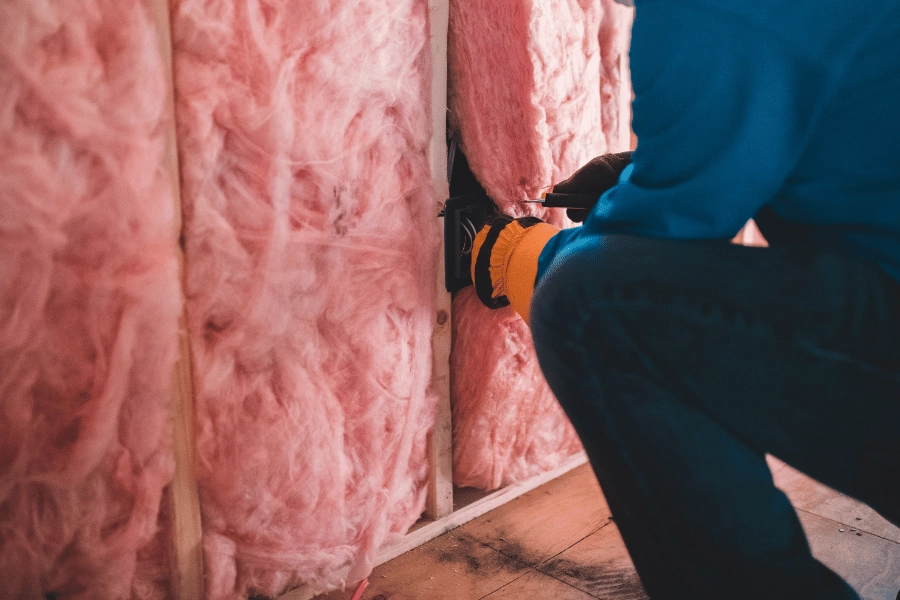
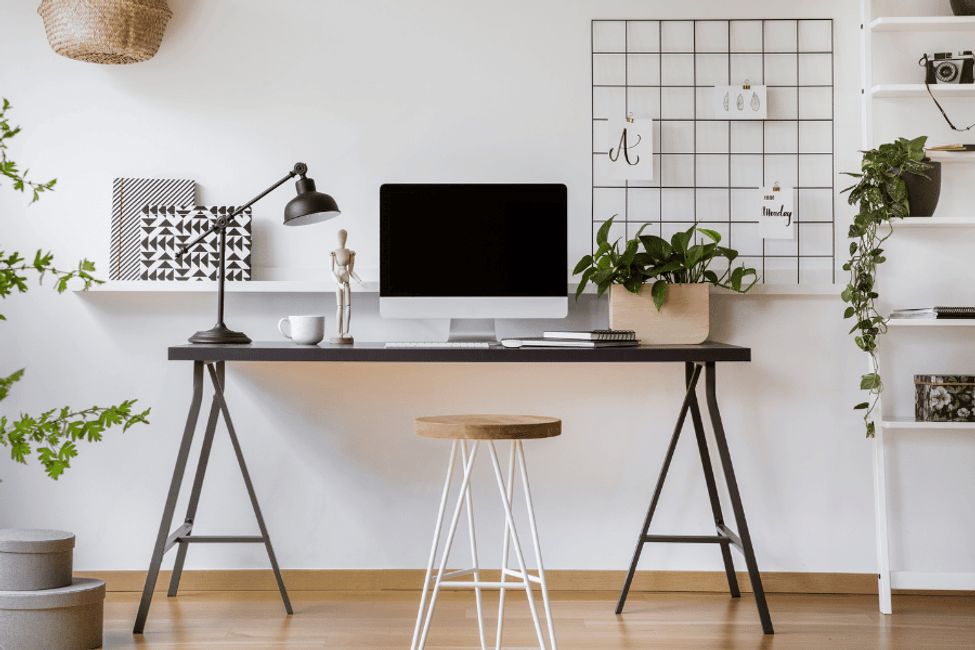
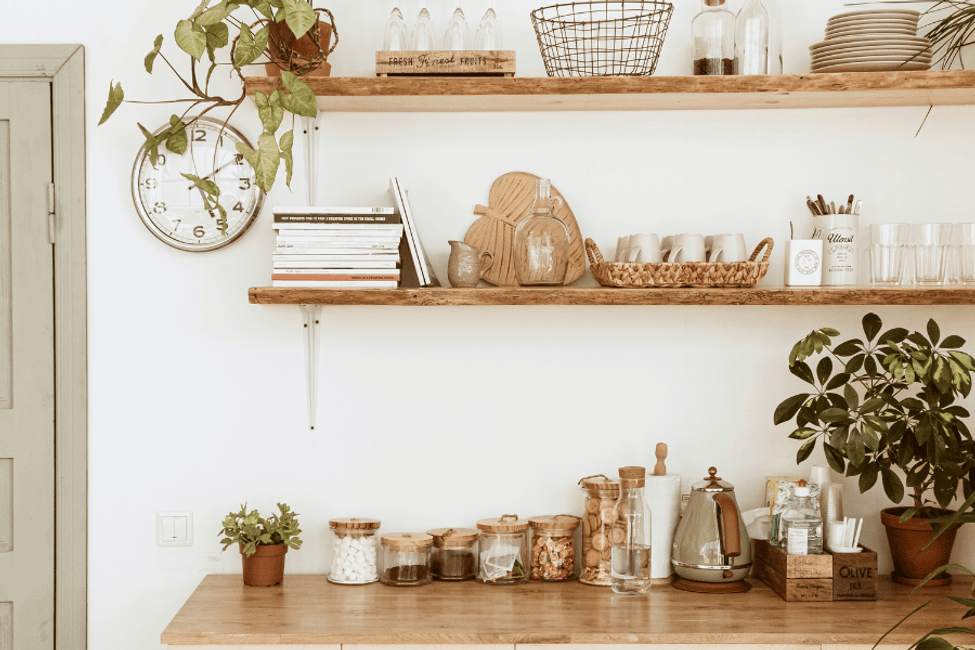
.png)